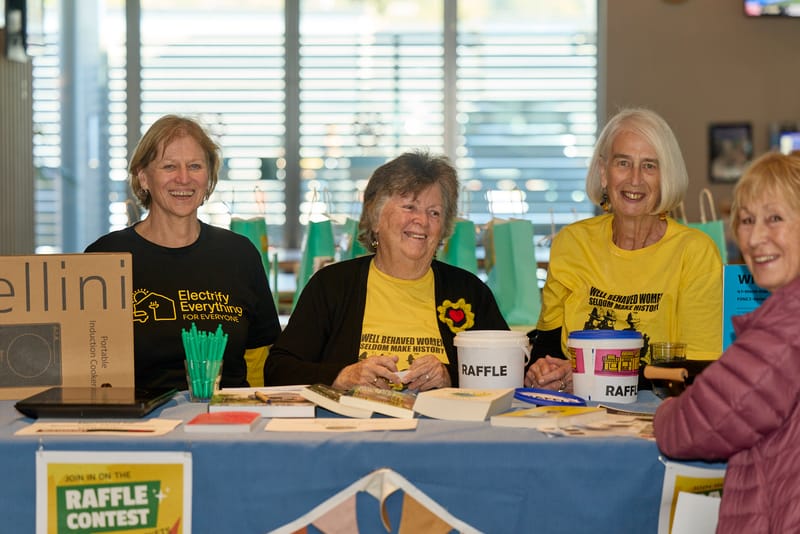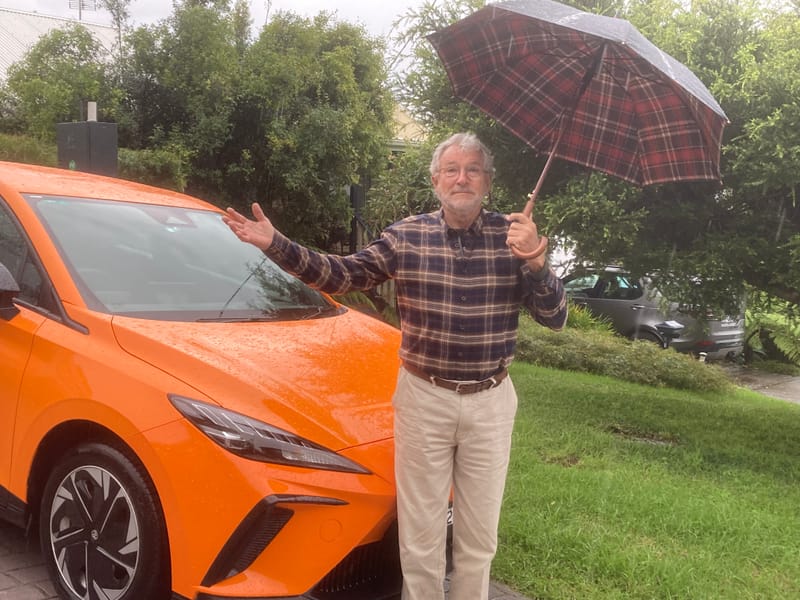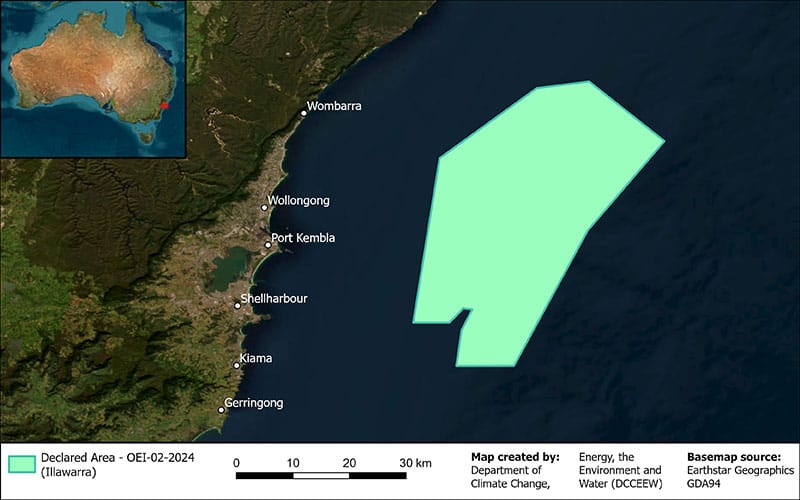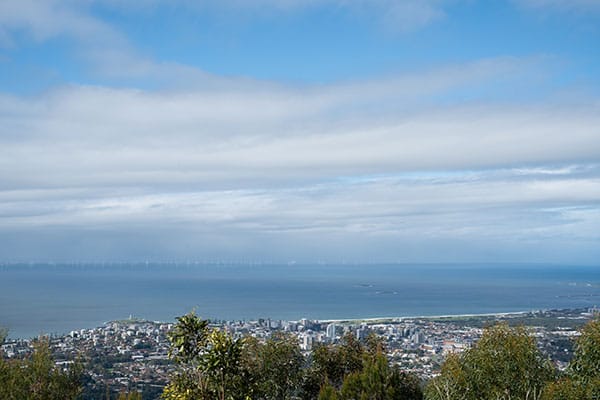Dr Saul Griffith urges Illawarra households to electrify these 'five big things'
Engineer, entrepreneur and climate advocate Dr Saul Griffith says Australians have 20 years to make five upgrades that could help the country meet its climate targets.
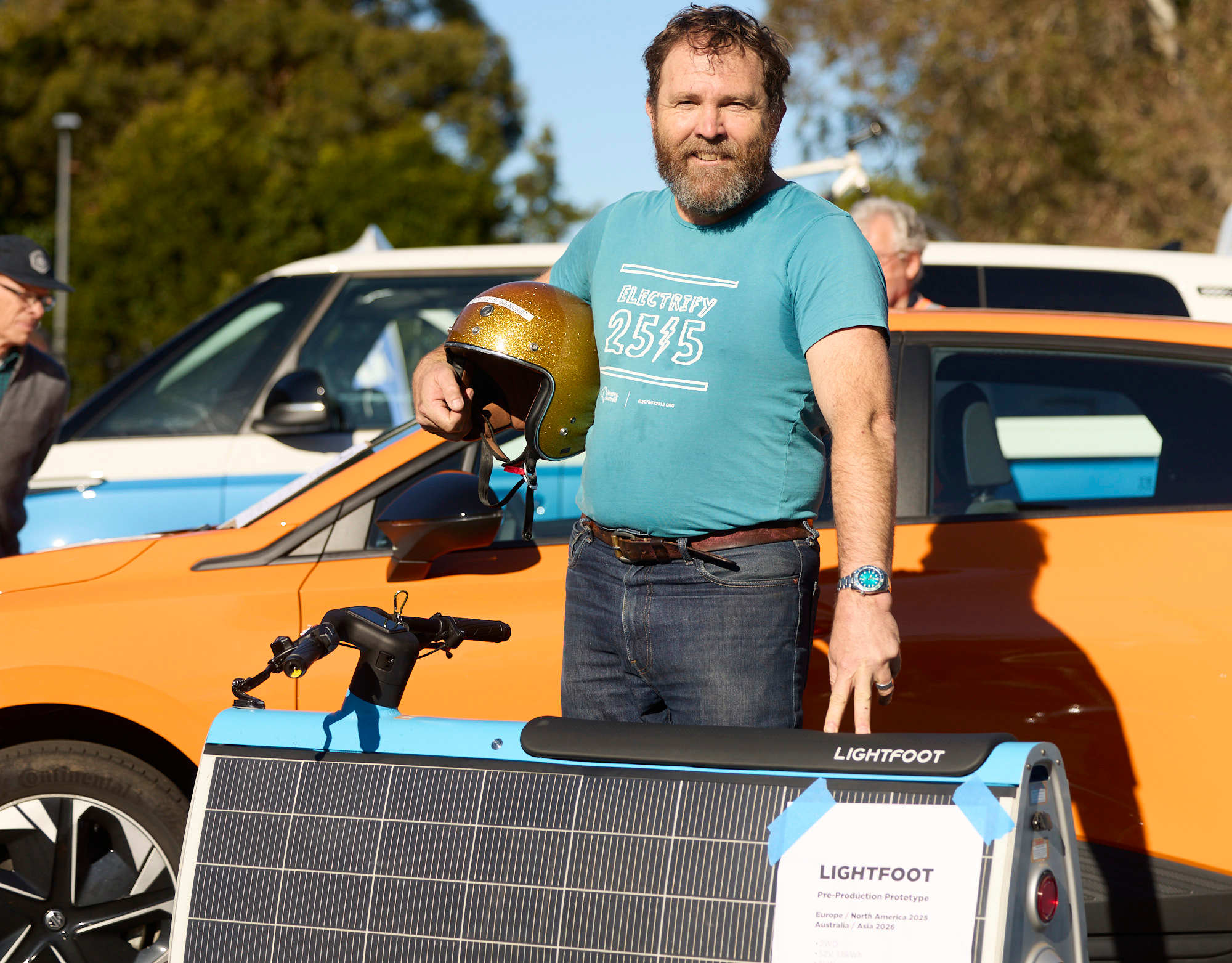
Engineer, entrepreneur and climate advocate Dr Saul Griffith says Australians have 20 years to make five upgrades that could help the country meet its climate targets.
As part of the Go Electric open day at Club Thirroul on Sunday, June 22, Saul launched his new book Plug In! The Electrification Handbook, a how-to guide for households looking to move away from gas and fossil fuels.
“You need to get really anxious about climate action," he told the crowd. "I want you to get urgent about it and hurry up and make five good decisions in the next 20 years. We need to be zero emissions by 2040–2050.
“I’m really in this for the climate. I’m happy to love the whales and the critters and I think we’re in trouble as a species if we don’t satisfy our climate goals.”
Those five choices are what he calls “the big things”: switching to an electric water heater, space heater, cooktop, car, and installing solar and batteries.
The event was part of a community-wide push by Electrify 2515, Australia’s first local electrification pilot.
Supported by Rewiring Australia, Brighte and Endeavour Energy, and funded by Australian Renewable Energy Agency (ARENA), the program will support 500 homes in the 2515 postcode to go electric and lower their energy bills.
Saul grew up in Sydney and now lives in the northern Illawarra. He has founded a dozen technology companies over the past 20 years in Silicon Valley.
In 2007, he was awarded the MacArthur Genius Grant and is founder and chief scientist at Rewiring America and Rewiring Australia, a nonprofit dedicated to widespread electrification.
Plug In! is his fourth book on clean and renewable energy, following Electrify, The Big Switch and The Wires That Bind, with each written for a different audience.
“Electrify was written with the intention to really influence international climate policy at the highest level – for Joe Biden or whoever was going to be in the White House and their advisers,” Saul says.
“Then I wrote The Big Switch and that was less for the boss and more for the thought leaders. Then I wrote The Wires That Bind, which is about the community benefits of electrification.
“As to why I wrote this book, one theory is if you keep saying it louder and louder, eventually everyone will hear.
“It's meant to say that Australia is one of the lucky countries that really gets to go first globally in this energy transition.
“We’ve done a few things right, like cheap rooftop solar that now works for everyone.”
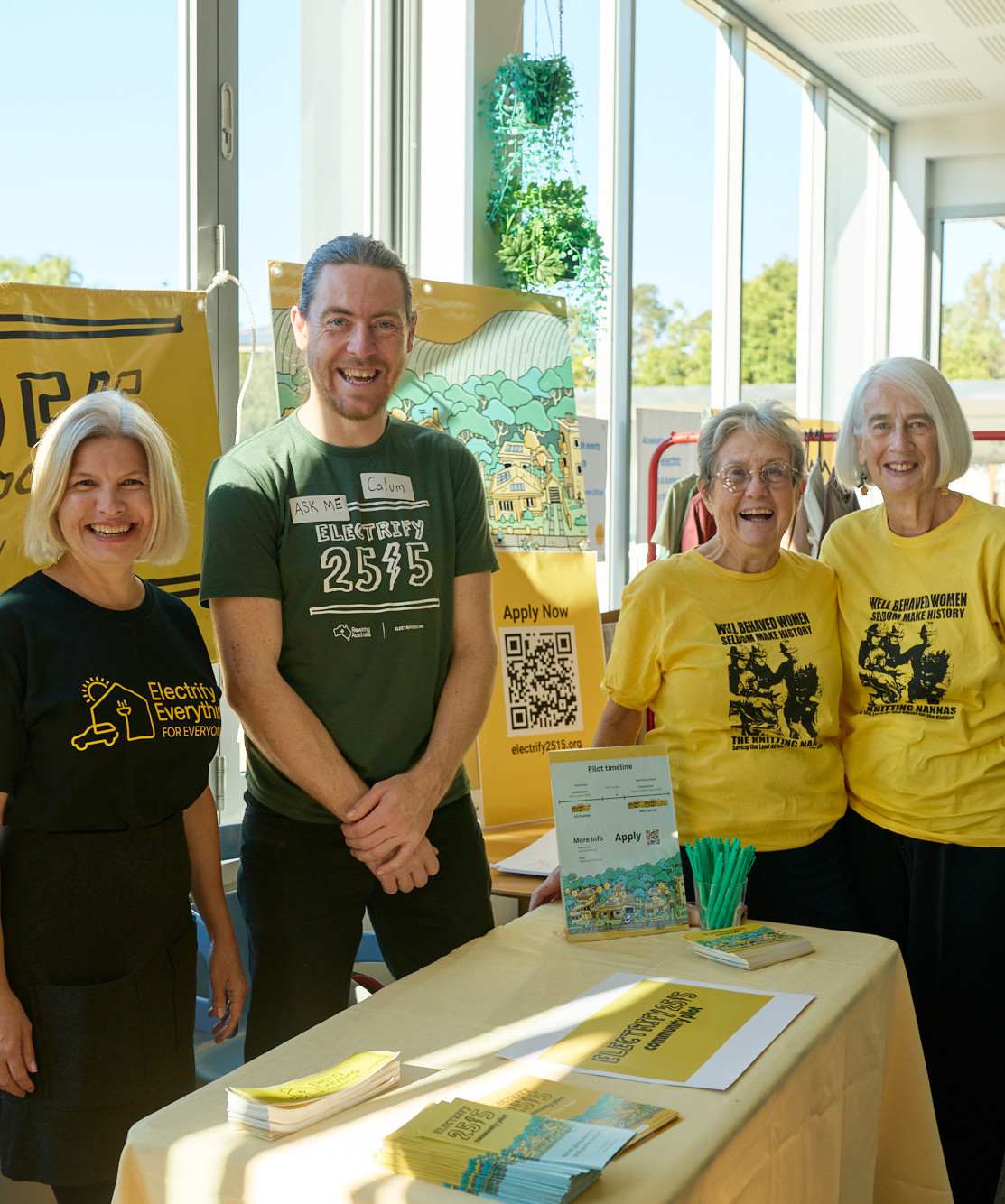
Electrification starts with those who own the machines
Saul’s book is broken into four parts: the big picture, the five major appliances, how our energy systems work and a section on FAQs.
It also includes stories from people who’ve already made the switch, including South Coast resident Chris Kerr, who has electrified his entire house.
"In the book there’s a nice yarn about how he first put solar on because he wanted to save money – he was doing it for return on investment,” Saul said.
“Then he got a bit overzealous with the settings on the water heater and his wife had a cold shower, and he realised he’d better dial it up a bit.
“He put more solar in and his wife has warm showers again. He talks about how that was a return, not on investment, but on comfort.
"Then he tells a lovely story about his three teenage daughters who were naturally quite concerned about climate, and he ended up really working on return on environment, return on comfort and return on investment at the same time.”
Saul spoke about the challenges of electrification, including access, affordability and equity. He asked the audience to consider renters, people living in strata and those who may not be able to afford the switch.
“Electrification is a project for middle-class people, and people who own property and work on boards, because they are the people with the financial power to make the decisions about all the machines in the economy,” he said.
He suggested strengthening regulation and legislation to further incentivise landlords and property owners to go electric at limited cost to renters.
He also advocated for changes in the rules and systems of the electricity market and talked about his belief in the power of community.
“My favourite little bit of the book is actually a bit of an ode to the tradie,” Saul says.
“I believe, if we’re going to do this energy transition, we’re naming the wrong heroes for climate – it’s going to be the men and women who show up in a white truck and help you navigate getting your water heater done.
“We will know we are succeeding in Australia at climate action when the tradies show up and don't say: ‘Yeah, just have a gas one, mate’.”
During the talk, Saul noted that interest in electrification tends to come from an older age bracket.
“The youngest person in the audience is 25, but in general, people who get interested in this are probably 40 or older,” he says.
“I was really worried about this: ‘Why aren’t all the kids showing up?’ ‘Why aren’t the kids anxious about the climate?’
“But one of the nerdy things I do is count every single fossil fuel machine in the economy.
“And if you think about it, you don’t buy a new car until you’re in your 30s or 40s, you don’t buy a house until around then, and you don’t buy the things that go in the house until you own the house.
“That’s half the emissions, things that we do in our daily lives, and the rest of emissions from Australia are done by corporate.”
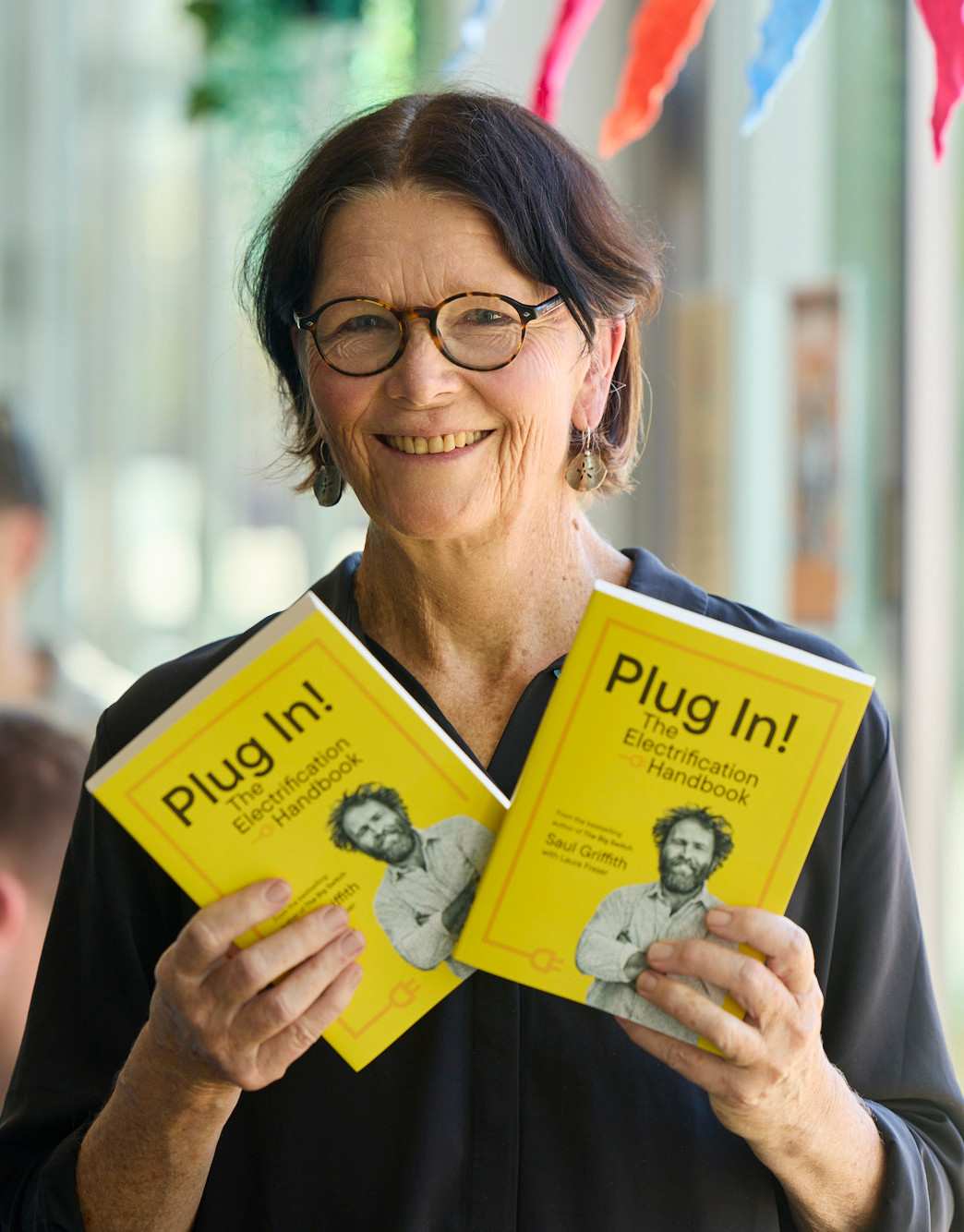
Climate action without the guilt
During a Q&A, Saul answered questions on nuclear power, EV charging, recycling and the fact that different climate groups often give conflicting advice.
“We do have green against green in a lot of cases,” he says.
“There’s the efficiency people who say ‘don’t electrify until you’ve done all the insulation’; you’ve got the recycling people, who are very cautious.
“The sort of new green movement is the electrification movement. I think it has the largest hope, we’re all going to have to do it eventually.
“Honestly, I don’t know how to solve this problem yet. Hopefully, good information, books and sensible conversations will get us to a better place.”
He said it’s important not to feel guilty for not having made the switch already but to make the right choices when the time comes.
“If you bought a Honda Civic two years ago, it’s a bit silly to throw it out now.
“It’s about the next time your water heater fails, next time you’re buying a car … the next time you’re making these decisions.
“If we all do that as a nation, we can hit our climate targets.”
Get your copy of Plug In! The Electrification Handbook at Collins Booksellers and all good bookshops.


